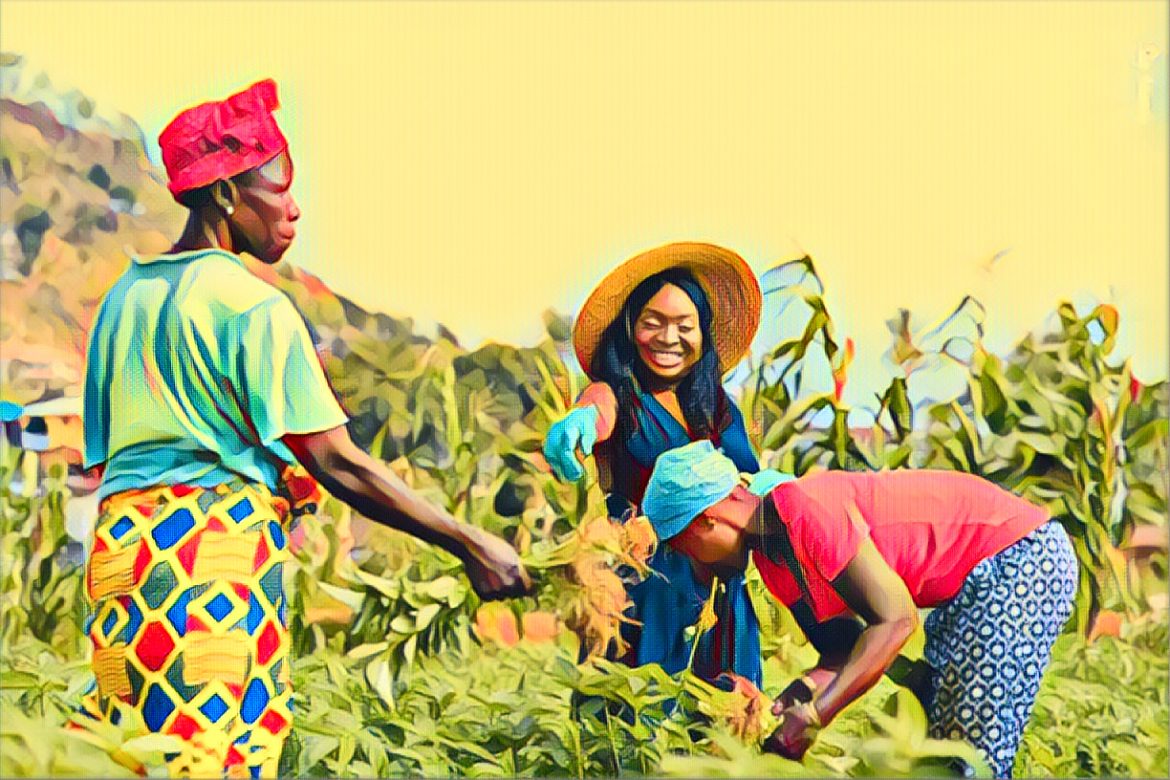Nigerian women farmers have called on the government to provide farm inputs and land as relief measures to cushion the effects of the fuel subsidy removal announced by President Ahmed Bola Tinubu in May 2023. The subsidy removal, aimed at aligning with global trends and enhancing fiscal sustainability, led to a sharp increase in the pump price of petrol across the country, affecting the cost of transportation and other essential goods and services.
The women farmers, under the umbrella of the Small Scale Women’s Farmers Organisation in Nigeria (SWOFON), made their demands during a stakeholders’ consultative meeting organized by the Centre for Community Empowerment and Poverty Eradication (CCEPE) and its partner organizations in Ilorin, Kwara State. The meeting focused on the 2024 agriculture sector budget and how to ensure increased public investment in agriculture.
The women farmers rejected the rice and beans palliative given by the government, saying that it was only a temporary solution that did not address their long-term needs. They argued that they needed access to land, gender-friendly machines, training, and eco-friendly inputs to boost their productivity and income. They lamented that the government did not recognize them and were often excluded from decision-making processes.
The women farmers issued a communiqué at the end of the meeting, urging the government to prioritize increased budgetary allocation to the agricultural sector, ensure transparency and accountability, support organic farming, include farmers with disabilities, handhold farmers to access credit facilities, create youth empowerment programs, partner with relevant stakeholders, and depoliticize agricultural interventions.
The women farmers’ demands reflect the challenges faced by many smallholder farmers in Nigeria, especially women and youth, who constitute a significant proportion of the agricultural workforce. According to the Food and Agriculture Organisation (FAO), women comprise about 50% of Nigeria’s agricultural labor force but face several constraints, such as limited access to land, inputs, finance, markets, extension services, and technology. These constraints limit their potential to contribute to food security, poverty reduction, and economic growth.
The FAO also notes that Nigeria has one of the lowest public expenditures on agriculture in Africa, despite its commitment to allocate at least 10% of its national budget to the sector under the Maputo Declaration of 2003. In 2023, Nigeria allocated only 1.73% of its budget to agriculture, far below the regional average of 5%. This has implications for the development of the sector and its resilience to shocks such as climate change, insecurity, and pandemics.
The fuel subsidy removal in Nigeria is part of a broader trend of fossil fuel subsidy reform in many countries worldwide. According to the International Monetary Fund (IMF), fossil fuel subsidies amounted to $5.2 trillion in 2017, equivalent to 6.5% of global GDP. The IMF argues that eliminating these subsidies would significantly benefit economic efficiency and environmental sustainability. However, it also acknowledges that subsidy reform can have adverse social impacts on low-income households and vulnerable groups if not accompanied by adequate mitigation measures.
Therefore, the government needs to engage with various stakeholders, especially women farmers, who are key actors in the agricultural sector and play a vital role in supporting their households and communities. By addressing their needs and concerns, the government can ensure that the subsidy removal does not worsen their situation but creates opportunities for them to improve their livelihoods and well-being.
Source: Tribune Online


